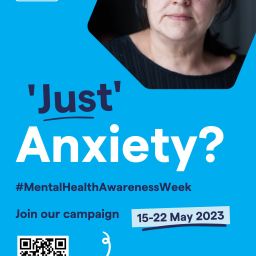 Ghosting has become an increasingly common experience in today’s digital age, where dating apps and social media platforms are integral to many relationships. Ghosting is when someone suddenly cuts off all communication without any explanation. While ghosting is most often associated with romantic relationships, it can happen in friendships and other forms of relationships as well.
Ghosting has become an increasingly common experience in today’s digital age, where dating apps and social media platforms are integral to many relationships. Ghosting is when someone suddenly cuts off all communication without any explanation. While ghosting is most often associated with romantic relationships, it can happen in friendships and other forms of relationships as well.
The emotional fallout from ghosting can be profound. Those who are ghosted—often called “ghostees”—are left confused, hurt, and sometimes even traumatised. When communication suddenly stops, there is no closure, no opportunity for understanding what went wrong, and no means to resolve the situation. This emotional ambush leaves the ghostee with feelings of low self-esteem, anxiety, and sometimes depression.
Why Do People Ghost?
The reasons behind ghosting are varied. Some ghosters may have avoidant attachment styles, fearing emotional intimacy or commitment. Others may engage in ghosting due to emotional immaturity or simply to avoid difficult conversations. In some cases, ghosting can be linked to personality traits that fall within the “Dark Triad”—narcissism, psychopathy, and Machiavellianism—where the ghoster lacks empathy and sees ghosting as an easy, albeit cruel, way out of a relationship.
Research supports this connection, with a study finding that individuals higher in Dark Triad traits were more likely to view ghosting as acceptable, particularly in short-term relationships. For them, ghosting is an easy exit strategy, devoid of the emotional investment and responsibility required in more traditional relationship dissolutions.
The Emotional Toll of Ghosting
 For the person being ghosted, the experience can be psychologically damaging. The sudden end to a relationship without closure often leaves people questioning themselves—wondering if they did something wrong or if they are unworthy of love. This uncertainty can exacerbate feelings of rejection, insecurity, and fear about future relationships.
For the person being ghosted, the experience can be psychologically damaging. The sudden end to a relationship without closure often leaves people questioning themselves—wondering if they did something wrong or if they are unworthy of love. This uncertainty can exacerbate feelings of rejection, insecurity, and fear about future relationships.
A growing number of people develop “ghostaphobia”—a fear of being ghosted that often affects their ability to fully engage in new relationships. Many clients come to therapy with stories of how ghosting has shattered their confidence. They become hyper-aware and anxious in the early stages of dating, over-analysing every text and conversation, constantly on guard for signs that the person they’re seeing might disappear.
Recovering From Ghosting
If you’ve been ghosted, the road to recovery can be challenging, but there are steps you can take to heal and regain your sense of self-worth.
- Recognise That No Response Is a Response
The silence from a ghoster speaks volumes. They’ve made their choice by not communicating, and while it may feel unjust, their behaviour reflects more on them than on you. Understand that you deserve respectful communication, and ghosting is a reflection of emotional immaturity. - Reframe the Experience
Ghosting is usually more about the ghoster’s own emotional struggles than about anything you did. Whether it’s fear of commitment or an avoidant attachment style, their disappearance is not a reflection of your value. Try not to internalise the rejection, and focus on reframing the situation as their inability to handle conflict or emotional honesty. - Avoid Generalising Future Relationships
One bad experience doesn’t define your future. It’s easy to catastrophise after being ghosted and assume that all future relationships will end the same way, but this only gives power to the ghoster. Address the trauma, perhaps with the help of a therapist, to prevent it from clouding your outlook on love. - Practice Mindfulness and Self-Compassion
Healing from ghosting requires time and self-compassion. Acknowledge the emotional pain and allow yourself to grieve the relationship. Use mindfulness techniques to sit with your feelings rather than pushing them away. Self-compassion exercises can help you process your pain and start to rebuild your emotional resilience. - Set Boundaries
If possible, avoid engaging with the ghoster again. It’s important to set healthy boundaries to protect your emotional well-being. Understand that ghosting is likely a pattern of behaviour for the person who ghosted you, and by disengaging, you remove yourself from the cycle. - Understand Emotional Immaturity
Emotionally mature people face difficult conversations with empathy and grace. Ghosting, on the other hand, is often a sign of emotional immaturity—it’s the easier option for those who lack the skills to navigate conflict and closure. Recognising this can help you detach emotionally from the situation and move on more easily. - Recognise Patterns
If you notice a pattern of being ghosted or choosing emotionally unavailable partners, it might be helpful to reflect on your relationship patterns. Often, people who have experienced difficult childhoods or dysfunctional family environments may inadvertently seek out similar dynamics in adult relationships. Understanding and breaking these patterns is key to healthier future connections.
Many people experience anxiety about being ghosted, especially in the early stages of dating. The anticipation of abandonment can make it difficult to relax and enjoy the initial excitement of a new relationship. This anxiety often stems from past trauma or rejection and can lead to obsessive behaviours like overanalysing texts or constantly seeking reassurance.
To overcome this fear and date from a place of confidence, consider the following strategies:
- Keep Busy
One of the best ways to combat ghosting anxiety is to maintain a busy, fulfilling life. When you’re focused on your own goals, hobbies, and responsibilities, you’ll naturally feel less preoccupied with when the person you’re dating last contacted you. - Be Kind To Your Inner Voice
Dating anxiety often comes from a part of us that’s insecure, seeking validation and reassurance from external sources. By learning to soothe and care for this vulnerable part yourself, you can reduce the need for constant external validation and approach relationships from a place of emotional security. - Communicate With Confidence
Know what you want from a relationship, and communicate it clearly from the outset. Setting boundaries and expressing your needs with confidence will help reduce anxiety about where you stand in the relationship.
The Collective Healing of Ghosting
 Ghosting has become so prevalent that many victims share their stories online as part of a collective healing process. Platforms like Instagram, TikTok, and Twitter often see hashtags like #ghosting trend, where people discuss their experiences and offer each other support. The act of sharing these stories provides validation for those who have been ghosted, helping them feel less alone in their pain.
Ghosting has become so prevalent that many victims share their stories online as part of a collective healing process. Platforms like Instagram, TikTok, and Twitter often see hashtags like #ghosting trend, where people discuss their experiences and offer each other support. The act of sharing these stories provides validation for those who have been ghosted, helping them feel less alone in their pain.
Ultimately, ghosting is a painful and often damaging experience, but it can also serve as a powerful reminder to choose relationships that are rooted in respect, empathy, and emotional maturity. By healing from the trauma of ghosting and learning to navigate relationships with confidence, you can protect yourself from future harm and foster healthier connections in the future.
Photo by Vitalii Khodzinskyi on Unsplash
Photo by Jake Pierrelee on Unsplash
Photo by Bran Sodre on Unsplash













